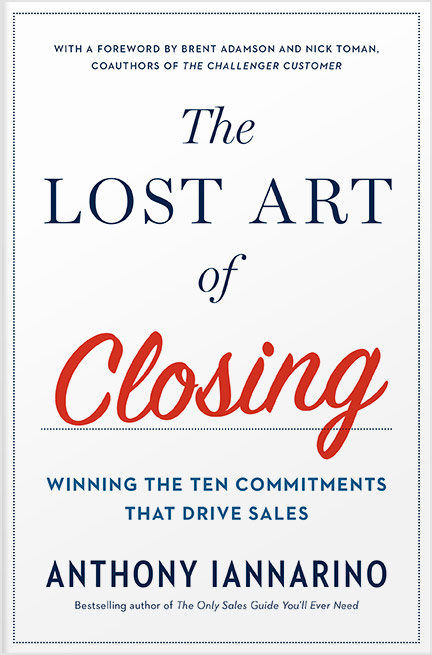The Gist:
- Modern B2B sales is challenging, but lowering the bar for B2B salespeople is a dangerous response.
- The transactional segment of sales has too little need for consultative salespeople.
- However, complex sales now require much more from a B2B salesperson.
My recent post, titled “Effective Insights and the Secrets to Insight-Based Selling,” caused one reader to complain that I was raising the bar beyond what one might reasonably expect from a consultative salesperson. In that post, I suggested that an effective insight-based strategy means the salesperson transfers their insight to their client, causing them to experience an “aha” moment that gives them a clearer view of their challenge, their business, and their decisions. My reader agreed with my argument, but insisted that no one would be able to execute the ideas I recommended.
One requirement for effective learning is the ability to accept—and even embrace—different perspectives, which often lead to improved results. So in my reply, I let my reader know that I’m not offended by criticism, partly because it helps me improve my ideas. I also acknowledged that his criticism had merit, as consultative selling is often difficult. But I cannot agree that we should lower the bar for competency in B2B sales—it’s just too dangerous for those who take care of themselves and their families as a professional salesperson.

The Fault (Line) in Ourselves
There is an economic fault line that has driven a lot of changes in the last couple decades. On one side, it has made many sales far more transactional than they were before. Information wants to be free, and the internet released it from its holding cells and provided easy access for anyone with a device. Commerce moved from retail stores to the web, making it easy for anyone to peddle their wares anywhere in the world, with no meaningful challenges. Meanwhile, disruptive business models have disintermediated traditional models, with giants like Amazon and Airbnb changing where we buy, who we buy from, and how we buy.
These changes have shifted the terrain by cutting out the middleman, removing the friction of buying, and delivering anything you can imagine within a couple days—young Veruca Salt would definitely love Amazon Prime! When what you buy is nothing more than a transaction, there is no need for a consultative salesperson to help you make a good decision. That goes double for salespeople who used to carry around a catalog: when a salesperson creates no value, they soon become irrelevant, replaced by technology that does the job just as well—or in some cases, better.


The Other Side of the Chasm
The other side of the chasm provides a very different picture. As the pace of change continues to accelerate, buyers can take less and less for granted, making complex buying decisions far more difficult. A complex sale is combines a decision the buyer makes too rarely to gain useful experience with a strategic outcome on the line—one where the wrong choice causes serious or even fatal consequences.
In a complex sale, no amount of research can replace the value of a truly consultative salesperson: one who has the domain experience and the insights to help the client land on the right decision, the right solution, and the right partner to help ensure they succeed. It’s true, transferring your insights into the client’s insights is a difficult outcome to achieve, but it shows the true value of an insight-based approach.
The other side of the chasm is marked by the need to create value in the sales conversation, in order to enable a good decision and a successful outcome, even if you have to drag some stakeholders kicking and screaming on the way to consensus. You and I are not the final arbiters of what clients need from salespeople or who they choose to buy from. But even as my reader critiqued the idea of transferring insight, he didn’t try to refute it directly—mainly because it’s true.

Why I Won’t Lower the Bar
The profession of sales is much better than it was in the past. In fact, the further back you look, the worse the strategies and tactics were. Many people still associate salespeople with high-pressure tactics, ridiculous negotiations, and outright lies. But that image is decades out of date—you would be hard-pressed to find a modern B2B salesperson with any competency in a high-pressure sales approach.
At the same time our sales approach has become more professional, though, even professional salespeople often lack the competencies that buyers need from them. This is not about “selling the way buyers want to buy,” a terrible idea that suggests compliance and subservience, but about being able to genuinely help the client by sense-making, enabling decisions, building consensus, and, yes, transferring their insights into something that provides their client with a higher-resolution lens and new potential choices. So yeah, the bar is set pretty high!
Lowering the bar, though, would remove the pressure to work like the devil to catch up to what your clients need from you as a consultative salesperson. Those who aspire to reach that high mark and fail will still be miles ahead of their competition, while also serving as examples for fellow professionals who are trying to keep pace. Even if you execute a modern sales approach imperfectly, including transferring your insight to your client, you help provide your colleagues and coworkers with a better path forward.
Do Good Work:
- How has your sales approach changed over time?
- What new competencies have you recognized that your clients need from you now?
- How do you need to develop to produce the best possible results for your clients?

Get the Free eBook!
Learn how to sell without a sales manager. Download my free eBook!
You need to make sales. You need help now. We’ve got you covered. This eBook will help you Seize Your Sales Destiny, with or without a manager.
Download Now







.jpg?width=768&height=994&name=salescall-planner-ebook-v3-1-cover%20(1).jpg)


